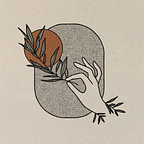The Mystery of Marilyn Monroe
The new Netflix documentary and why we continue to be fascinated by the star’s life and tragic end
I told myself I wasn’t going to watch the new documentary on Netflix about Marilyn Monroe’s death, chronicled through never heard before tapes recorded by Anthony Summers for his book on Monroe, ‘Goddess.’ Why was I avoiding it you may ask? I am a documentary addict, and if I could avoid falling down a rabbit hole, I would. That lasted all of a week.
The documentary is very well done. Actors lip-synch the recordings, something I thought I would find odd and overdone but that was actually quite effective at humanizing otherwise detached voices. I came away from the documentary with a renewed view of Monroe and how she had been used and discarded by men for her entire career.
There is good reason that so many conspiracy theories have sprung up around her death: many of the official facts from the evening are easily dismissed by witness testimony, and she was notoriously intimately involved with the highest levels of American society, allegedly (and after watching this documentary almost certainly) having affairs with both JFK and Bobby Kennedy.
Conspiracy theories thrive on coverup and mistrust. When the official explanation doesn't make sense or seems incomplete, we as humans can’t simply just leave it there and drop it. We put on our Sherlock Holmes caps and prepare for the deep dive.
In the case of Monroe's death, this sort of investigation is relatively harmless. It helps illuminate her as a person and not just an icon, and while some do accuse various figures of murdering her, these allegations never adversely affected their lives (as far as I am aware.)
But this is where things can get dangerous. There are various other conspiracy theories where the accusations are far from harmless- they are life-ruining. Our distrust of facts that don’t make complete logical sense has us seeing sinister patterns where they don’t exist, or mistrusting everything the government is telling us.
In Monroe's case, this had led to a lasting obsession with uncovering every last detail of her demise, but in others, it has led to the harassment of the families of victims of school shootings or threatening to storm secret government bases.
If you are interested in learning more about the psychology of conspiracy theories, this week's episode of Quincy and Claire Talk Conspiracy is an interview with a post-doctorate researcher at the University of Cambridge who studies fake news and conspiracy theories.
